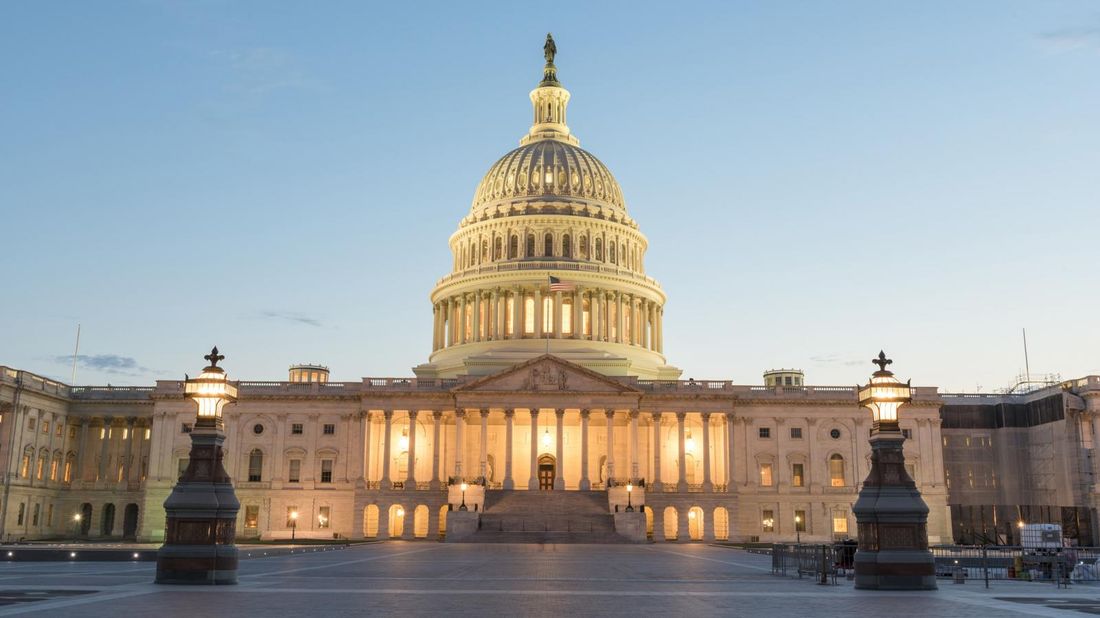Congress Is Considering Tax Hikes: Here Are 8 Key Things We’re Watching

If you’ve been following what’s happening in Washington, D.C., you know that the House of Representatives’ Ways and Means Committee recently released a slew of tax proposals that are currently in the House Democrats’ "Build Back Better Act" (BBBA). In addition, a high-level summary of tax policy options being considered by the Senate Finance Committee was leaked, and it has now widely circulated in the media.
Though there are still many unknowns, the proposed changes would raise tax rates (mostly on high income earners) and make other changes to the Internal Revenue Code. The proposals have a long way to go before they’d become law — for instance, if the House bill reaches the Senate, the proposals could change again.
Right now, it’s a bit of a wait-and-see game. But given the potential impact this legislation could have, we’re certainly keeping a close eye on all of the developments. Here are some of the key points we’re paying close attention to and how they could affect you if they become law.
1. INDIVIDUAL INCOME AND CAPITAL GAINS TAX RATES
Perhaps one of the most talked about proposals is an increase in the top marginal income tax rate to 39.6 percent. The increased rate would apply to taxpayers with taxable income of more than $450,000 (for married, filing jointly), $425,000 (for heads of household), $400,000 (for single filers) or $225,000 (for married, filing separately). The higher rate would also apply to trusts and estates with taxable income of more than $13,450 (this amount would be adjusted for inflation in future years).
In addition, the top capital gains rate would be increased from 20 percent to 25 percent for those earning more than $400,000. This would be effective for tax years ending after the date of introduction (September 13, 2021); however, a transition rule would keep it at 20 percent for gains recognized earlier in 2021.
2. THE NET INVESTMENT INCOME TAX
One proposal that would mainly affect high earners with significant investment income focuses on the net investment income (NII) tax, which is a surtax on a portion of modified adjusted gross income (MAGI) over certain thresholds. The change would expand the application of this 3.8 percent tax rate to include net income that is derived in the ordinary course of business above $500,000 (for married, filing jointly) and $400,000 (for single filers).
3. THE QUALIFIED BUSINESS INCOME DEDUCTION
The bill would set the maximum allowable deduction under the Qualified Business Income Deduction (officially the Tax Cuts and Jobs Act, Provision 11011, Section 199A) at $500,000 for people who are married, filing jointly, $400,000 for individual filers, $250,000 for married, filing separately filers and $10,000 for a trust or estate.
4. A HIGHER INCOME SURTAX
BBBA introduces a new, 3 percent surtax on individual filers with a MAGI of more than $5 million (or $2.5 million for married, filing separately filers). It also applies to trust and estate income that exceeds $100,000.
5. VALUATION DISCOUNTS
The bill proposes eliminating the ability to claim a valuation discount for certain estate and gift tax transactions. It would go into effect for transfers completed after the bill’s date of enactment.
6. ESTATE AND GIFT TAX EXEMPTIONS
The 2017 Tax Cuts and Jobs Act temporarily increased the gift and estate tax exemptions and they are set to revert in 2026 to approximately $5 million per person adjusted for inflation from 2011. The House Ways and Means Committee proposal would accelerate this sunset to January 1, 2022; however, as the Senate Finance Committee document does not mention this topic, it is unclear whether a final bill would include this language.
7. IRA REFORM
Both the House bill and Senate document would put limits on IRAs that reach a certain amount ($5 million based on the Senate language and $10 million in the House).
In addition, the House bill would eliminate Roth conversions for taxpayers who make more than $450,000 (for married, filing jointly) or $400,000 (for single filers). This would prevent high income earners from using this tactic to avoid income restrictions on Roth IRAs. The House version would also prohibit converting a non-deductible IRA to a Roth IRA.
8. GRANTOR TRUST RULES
A proposal in the bill that could have a big effect on estate planning says that if a deceased person is deemed the owner of a grantor trust for income tax purposes, the trust will be included in the individual’s taxable estate. This would be effective for future trusts and future transfers into existing grantor trusts. The proposal would also eliminate an “estate freeze” technique that allows a sale by a grantor to a grantor trust (in which the grantor is the deemed owner of the trust assets for income tax purposes) without the individual having to recognize any gain from such a sale.
WHAT’S NEXT
The timeline for these proposals is unclear. If something is passed, it’s likely to happen in the coming weeks or months. While it’s difficult to make planning decisions without knowing what will be in the final proposal, if you have questions or are considering revisiting your estate planning, it’s never too early to have a conversation with your advisor about how these proposals could impact you and your family.
This publication is not intended as legal or tax advice. Financial representatives do not render tax advice. Consult with a tax professional for tax advice that is specific to your situation.
Related Articles
Let’s personalize your financial plan.
Your advisor will help you define what’s important for you and your family—uncovering opportunities and blind spots. Then they’ll work with you to personalize a comprehensive plan to grow your wealth while protecting it from risks.
Find your advisor




